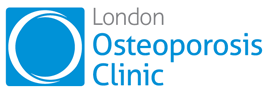The Recommended Daily Allowance (RDA) of calcium varies depending on age, gender and life stage. Here are some general guidelines from the UK’s National Health Service (NHS):
- Infants 0-12 months: 525 mg/day
- Children 1-3 years: 350 mg/day
- Children 4-6 years: 450 mg/day
- Children 7-10 years: 550 mg/day
- Adolescents 11-18 years (Boys): 1000 mg/day
- Adolescents 11-18 years (Girls): 800 mg/day
- Adults 19-64 years: 700 mg/day
- Adults 65+ years: 1200 mg/day
- Pregnant and breastfeeding women: 700 mg/day
Fortunately, most people should be able to get enough calcium through a balanced diet. Let’s take a look at some calcium-rich foods and their approximate calcium contents:
- Milk (whole, semi-skimmed, skimmed, 200ml): 240-250mg
- Cheese (cheddar, 30g): 220mg
- Yoghurt (plain, low fat, 150g): 200mg
- Tofu (cooked, 100g): 510mg
- Almonds (25g): 60mg
- Green leafy vegetables such as kale and broccoli (cooked, 95g): 55-60mg
- Fish where you eat the bones, such as sardines and pilchards (canned, 100g): 240-460mg
- Bread (white or wholemeal, one slice): 40-50mg
Remember, the calcium contents can vary depending on the brand and preparation method, so it’s always best to check the nutritional information when possible.
The key to meeting your calcium needs is diversity in your diet. Incorporating a variety of these calcium-rich foods can help ensure you’re getting the right amount of calcium each day. If you’re concerned about your calcium intake or if you’re at risk for osteoporosis, it’s always a good idea to consult a healthcare professional or a dietitian for personalized advice.
Keeping an eye on your calcium intake is an essential part of maintaining bone health. So, remember to consume a balanced diet rich in calcium, and you’ll be on your way to stronger bones!


